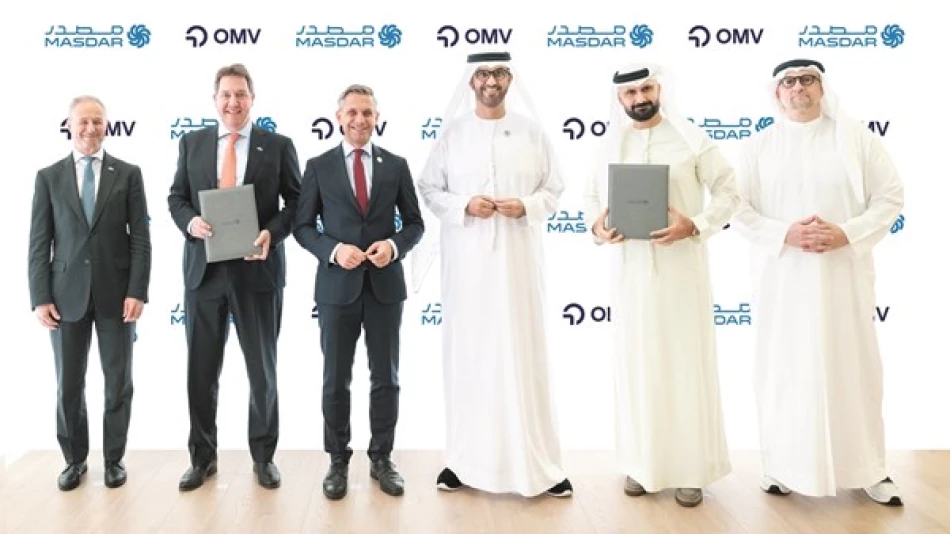
Austria Greenlights Hydrogen Power: Renewable Energy Leaders Partner to Drive Sustainable Transformation
UAE clean energy giant Masdar has partnered with Austrian energy company OMV to build one of Europe's largest green hydrogen production facilities. The 140-megawatt plant in Austria represents a major step in Europe's push to reduce carbon emissions and marks Masdar's growing presence in the European market.
The companies signed a binding agreement during ADIPEC 2025 to create a joint venture that will finance, build and operate the hydrogen facility in Bruck an der Leitha, Austria. Construction starts in September 2025, with operations expected to begin in 2027.
Under the partnership structure, Masdar will hold a 49% stake while OMV takes 51% ownership. The deal combines Masdar's global expertise in clean energy project development with OMV's deep knowledge of chemical processes and local market operations.
For OMV, this project serves a specific business need. The Austrian company plans to use the green hydrogen to decarbonize operations at its Schwechat refinery, helping it meet increasingly strict European environmental regulations. This approach reflects a broader trend where traditional oil and gas companies are investing in clean energy to reduce their carbon footprint.
The timing aligns with Europe's aggressive hydrogen strategy. The European Union has set ambitious targets for hydrogen production as part of its plan to become carbon neutral by 2050. Large-scale facilities like this one are essential to meet those goals and create the infrastructure needed for a hydrogen economy.
From an investment perspective, the project opens new opportunities for both companies. Masdar gains a foothold in the European market, which offers stable regulatory frameworks and strong government support for clean energy. OMV gets access to Masdar's financing capabilities and technical expertise in renewable energy projects.
The joint venture still needs regulatory approvals and shareholder sign-offs before it can move forward. Companies expect to complete the formal establishment process by early 2026, giving them time to secure permits and finalize technical specifications before construction begins.
This partnership reflects the UAE's broader strategy to expand its clean energy investments globally. As oil revenues face long-term uncertainty, UAE companies are positioning themselves as leaders in the energy transition, particularly in hydrogen production where the country's expertise in large-scale energy projects provides a competitive advantage.
Most Viewed News

 Layla Al Mansoori
Layla Al Mansoori






